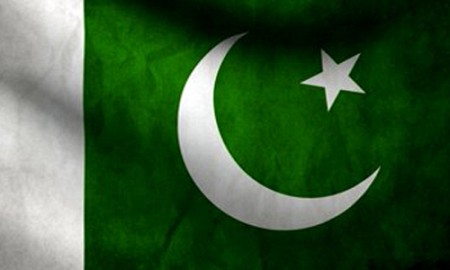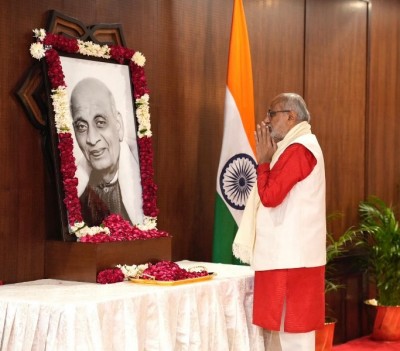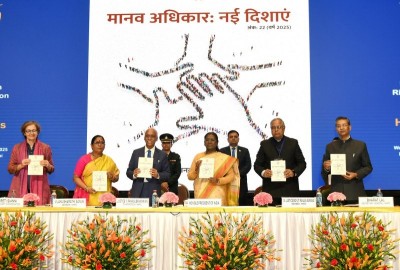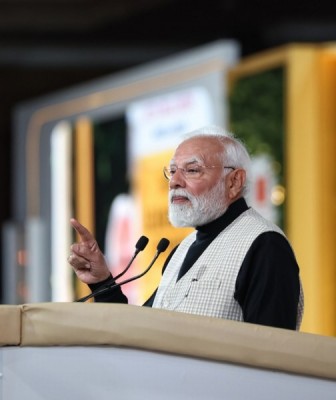
FATA: Uncertainty Persists
Earlier, on February 29, 2016, Security Force (SF) personnel killed 12 terrorists, including a 'commander' of the Tehreek-e-Taliban Pakistan (TTP)-Shehryar faction, identified as Hezbollah, in the Shawal Valley.
19 terrorists were killed and four SF personnel, including a captain, lost their lives during a gunbattle near the Pak-Afghan border in the Mangroti area of Shawal Valley on February 27, 2016.
Significantly, on February 24, 2016, the Pakistan Army launched the 'final phase' of Operation Zarb-e-Azb (sharp and cutting) to neutralise the terrorists still holed up in the strategic valley. According to partial data compiled by the South Asia Terrorism Portal (SATP), at least 91 terrorists and four SF personnel have been killed in the valley since then (data till March 11, 2016).
The Director General (DG) of Inter Services Public Relations (ISPR), Lt. Gen. Asim Saleem Bajwa, tweeted on March 8, 2016: "Operations continue as important heights and passes along the Pak-Afghan border are secured. The valley's sanitisation [is] in progress. Ground forces continue their hunt for fleeing terrorists through chase, cordon and search operations."
Operation Zarb-e-Azb was launched in NWA on June 15, 2014, in the aftermath of the attack on the Jinnah International Airport, Karachi, on June 8-9, 2014, in which at least 33 persons, including all 10 attackers, were killed. Since then, according to partial data compiled by SATP, at least 2,551 terrorists and 232 soldiers have been killed (data till March 11, 2016). [As media access to the areas of conflict is severely limited no independent verification of number of fatalities or identities of those killed is available.] However, Lt. Gen. Bajwa claimed, on December 12, 2015, "3,400 terrorists [were] killed, and 837 hideouts from where they were carrying out their terrorist activities [were] destroyed... Success came at a heavy price as 488 valiant officers and men of Pakistan Army, FC [Frontier Constabulary] KP [Khyber Pakhtunkhwa] and Bolan and Sindh Rangers sacrificed their lives while another 1,914 were injured."
Meanwhile, overall fatalities in FATA registered a 34.26 per cent decline through 2015 as compared to the previous year; from 2,863 killed in 2014 to 1,882 in 2015. While civilian fatalities declined by 15.72 per cent, fatalities among SFs registered a sharp 45.36 per cent decline. Terrorist fatalities also fell 34.58.
The number of major incidents (each involving three or more fatalities) in the Province also decreased by 29.79 per cent in 2015 in comparison to the previous year, principally due to the squeeze in the area of counter-insurgency operations. The Province accounted for 139 major incidents of violence resulting in 1,868 deaths in 2015, as against 198 such incidents, accounting for 2,709 fatalities in 2014.
There was a considerable decrease in incidents of explosion; in comparison to 101 blasts resulting in 179 fatalities in 2014, 2015 recorded 72 blasts resulting in 140 fatalities.
Though the number of suicide attacks in both these years stood at three each, the resultant fatalities increased from 17 in 2014 to 18 in 2015. Incidents of sectarian violence also registered an increase, with three incidents in 2015, inflicting 32 fatalities and 72 injuries, while 2014 saw just one such incident in which two people were killed and 28 were injured.
TTP's attacks on educational institutions in the region have also increased. On December 16, 2015, the Government told the National Assembly that 360 schools were destroyed in three agencies of FATA during 2015. At least 166 schools were destroyed in NWA, 139 in Khyber Agency and 55 in SWA. The official estimate for reconstruction of these schools stood at PKR 348.758 million. Federal Minister for States and Frontier Regions, Lt. Gen. (Retd.) Abdul Qadir Baloch told the National Assembly, "The areas of the [FATA] agencies which are not accessible are being assessed/surveyed." It was not specified that which areas were "not accessible" and which "are being assessed/surveyed".
FATA has, of course, registered relative improvement in terms of terrorism-related fatalities. As expected, consequently, while ordering the final phase of the Operation on February 24, 2016, the Chief of Army Staff (COAS) General Raheel Sharif claimed that the deeply forested ravines of Shawal Valley and the area beyond Datta Khel, which have been frequent infiltration routes for terrorists between Pakistan and Afghanistan, are now the last bastion of terrorists left in NWA. Similarly, Lt. Gen. Bajwa claimed, on December 12, 2015, "Phenomenal successes achieved as last pockets to Pakistan Afghan border are being cleared."
These claims are overstated. Journalist and author Ahmed Rashid, in his lecture "Continuing search for stability: Pakistan and Afghanistan" at the Pakistan Institute of International Affairs on March 11, 2016, observed, "effectiveness of the operation is stymied by the fact that around 1,500 terrorist leaders have crossed over to hostile territories in Afghanistan where there is no mechanism or will to take them to task".
FATA continues to remain highly insecure and has has already recorded 230 fatalities, including 190 terrorists, 21 civilians and 19 SFs, in 2016 [till March 11]. The worst attacks in FATA in 2016 include the January 19 strike, where 12 persons, including a journalist, were killed while 39 others sustained injuries when a suicide bomber targeted the tribal Khassadar force in the Karkhano Market of Khyber Agency; and the February 17 attack, where at least five Khasadar force officials were killed when unidentified terrorists attacked a Khasadar check post on the Mohmand-Peshawar Highway in the Pandyali area of Mohmand Agency.
The insecurity overflows both from and into the area as well. In the current year, till March 11, 2016, Pakistan had already recorded 512 terrorism related fatalities, including 334 terrorists, 104 civilians and 74 SF personnel. The attack on Bacha Khan University in the Charsadda District of Khyber Pakhtunkhwa (KP), where TTP terrorists stormed the campus and killed at least 22 persons, including 18 students and injured 35, is a reminder of the enduring and lethal capabilities of the terrorist formations that operate in FATA as well.
The Government, meanwhile, has reiterated its pledge to continue the fight against 'all terrorist formations without discrimination'. On February 11, 2016, President Mamnoon Hussain declared that Operation Zarb-e-Azb would continue till the elimination of the last terrorist from the country. Earlier, on December 19, 2015, General Raheel Sharif reiterated that Zarb-e-Azb would continue till the elimination of last terrorist from the country. Similarly, Prime Minister Nawaz Sharif observed, on March 8, 2016, "Pakistan was fighting terrorism as part of a 'moral obligation' to eliminate the scourge from the country."
But, while operations against TTP and a few other domestic formations demonstrate a measure of focus and political determination, Pakistani ambivalence towards terrorist groups operating against other states, particularly India and Afghanistan, continues to create spaces for armed disorders that allow domestic groups to survive as well. Unsurprisingly, despite a long 'dedicated operation', Pakistan has failed to secure its territory, raising questions over the intent and direction of the military campaigns. The rhetoric of fighting till the last without any discrimination among terror groups, moreover, is impossible to reconcile with the realities of what is happening on the ground in Pakistan.
Support Our Journalism
We cannot do without you.. your contribution supports unbiased journalism
IBNS is not driven by any ism- not wokeism, not racism, not skewed secularism, not hyper right-wing or left liberal ideals, nor by any hardline religious beliefs or hyper nationalism. We want to serve you good old objective news, as they are. We do not judge or preach. We let people decide for themselves. We only try to present factual and well-sourced news.







